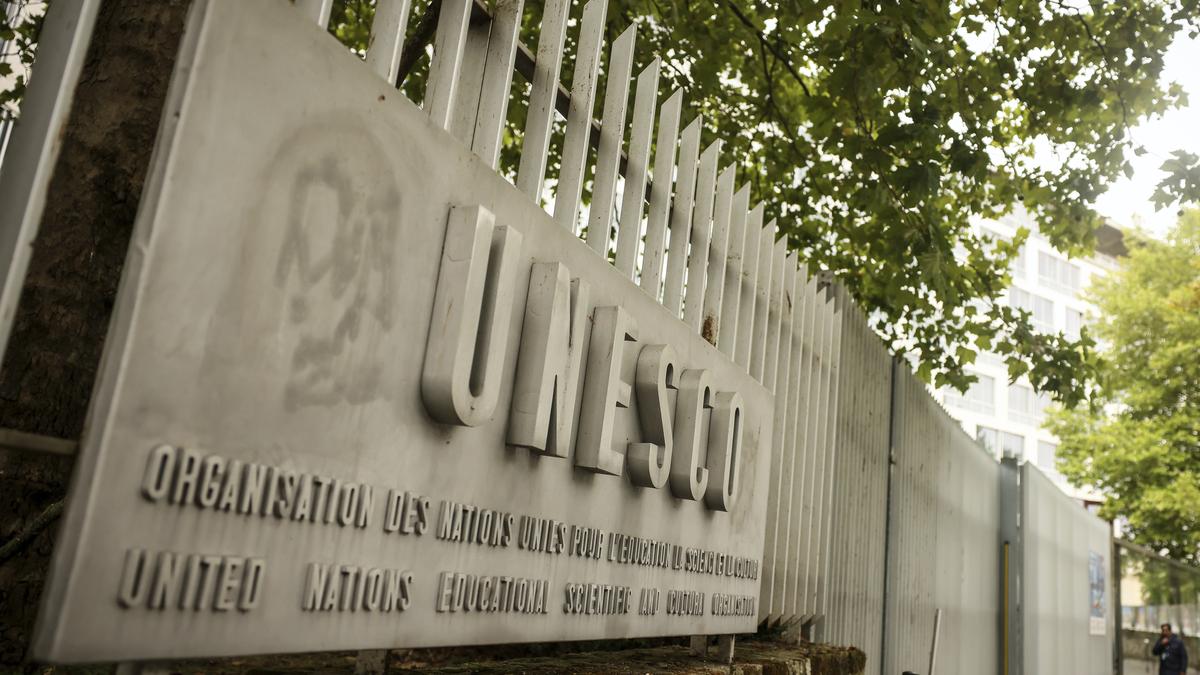U.S. withdraws from UNESCO for the third time

- 25 Jul 2025
In News:
In 2025, the United States announced its decision to withdraw from the UNESCO, citing perceived bias against Israel. This move comes just two years after rejoining the organization in 2023 and marks the third U.S. exit, and the second under the Trump administration.
What is UNESCO?
- Full Form: United Nations Educational, Scientific and Cultural Organization
- Founded: 16th November 1945
- Headquarters: Paris, France
- Membership: 194 Member States and 12 Associate Members
- India's Role: A founding member of UNESCO
Mandate and Key Functions
- Education: Promote inclusive and equitable lifelong learning (aligned with SDG 4)
- Culture: Safeguard tangible and intangible cultural heritage through tools like the World Heritage List
- Science: Advance climate science, AI ethics, and sustainable development
- Global Understanding: Foster mutual respect, peace, and international cooperation
Timeline of U.S. Exits from UNESCO
|
Year |
Administration |
Reason for Exit |
|
1984 |
Reagan |
Accusations of mismanagement and pro-Soviet bias |
|
2017 |
Trump (1st Term) |
Alleged anti-Israel bias after Palestine was accepted as a member in 2011 |
|
2025 |
Trump (2nd Term) |
Continued allegations of bias; exit scheduled by December 2026 |
- Rejoined: Under Biden Administration in 2023
Global Implications of U.S. Withdrawal
1. Financial Consequences
- The U.S. was a major contributor to UNESCO.
- Its exit leaves a budget deficit, affecting:
- Education initiatives
- Cultural heritage projects
- Climate and AI research
- Past example: U.S. and Israel froze funding after Palestine’s admission in 2011.
2. Geopolitical Rebalancing
- China’s influence may expand in UNESCO’s absence, potentially altering agendas and narratives.
- Risk of geopolitical polarization in multilateral agencies.
3. Weakening of Multilateralism
- Unpredictable U.S. engagement weakens global cooperation mechanisms.
- Undermines trust and support for UN agencies, especially in developing countries.
4. Impact on Science and Education
- Reduced backing for global programs in:
- STEM education for girls
- AI ethics frameworks
- Climate change awareness and mitigation
Implications for India
Opportunities
- Diplomatic leverage: Greater voice in shaping global agendas on education, AI, and heritage.
- Soft power expansion: Through advocacy for Indian culture and World Heritage nominations.
- South-South cooperation: Leadership in global education and sustainable development dialogue.
Challenges
- Funding constraints could affect:
- Ongoing Indian UNESCO projects (e.g., Nalanda, Sundarbans)
- Educational programs in rural/tribal regions
- Increased pressure on India to contribute more financially
- Rising Chinese influence could marginalize India’s strategic interests
